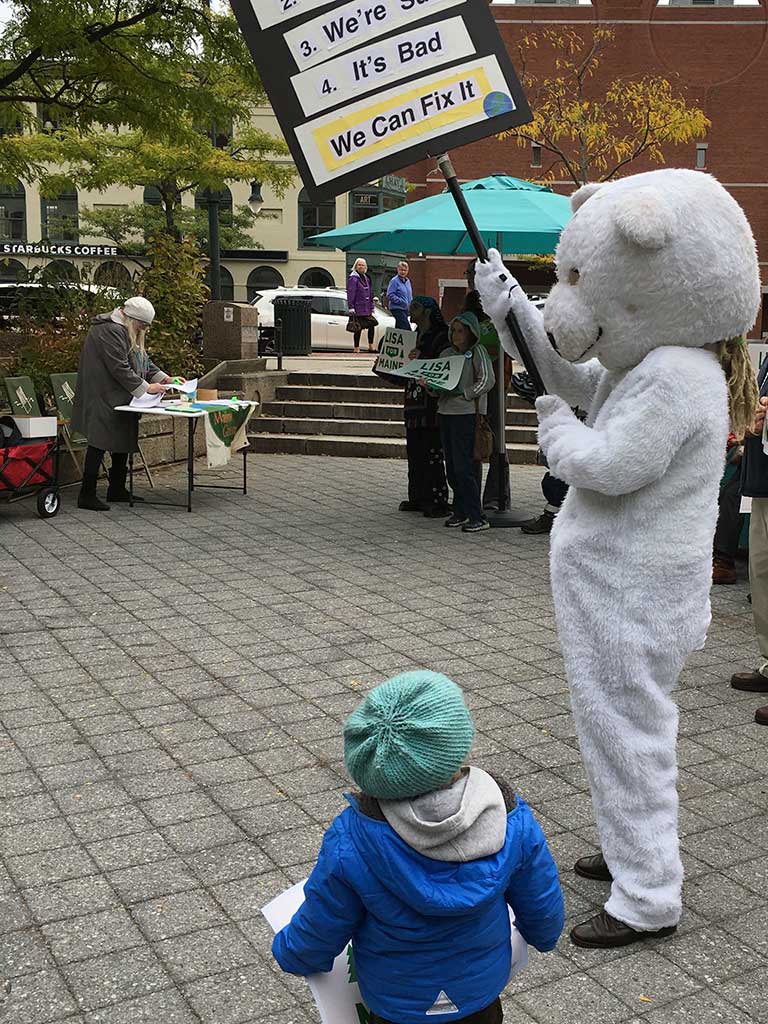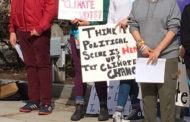We’re All in This Together
Health Impacts of the Climate Crisis
By Dr. Julia Lockwood
As a general pediatrician who practiced for thirty-seven years in Yarmouth, I have fond memories of my patients and families. As those in my care were largely healthy middle-class children, the bulk of my work was developmental guidance and caring for routine pediatric ailments: how to manage acne, how much TV is too much, how to deal with the picky eater, the distractible child, the busy sport schedule….
When these children grow and have children and grandchildren, I can only imagine the health challenges they will face in the future if we don’t address the causes and mitigation of the changing climate.
Goals for Clean Air Are Good for Our Health
In a paper in the Proceedings of the National Academy of Sciences Study from November 2021 a well-known climate scientist Dr. Drew Shindell and his team state that the clean air that would result from meeting the targets of the 2015 Paris Climate Accords (less than 2 degree C rise in global temperatures above pre-industrial levels) would avoid over the next 50 years the following:
- 4.5 million premature deaths from dirty air
- 1.4 million hospital and emergency room visits for ailments including respiratory conditions such as asthma and bronchitis
- 300 million lost workdays due to illness
- 1.7 million incidences of dementia
- 440 million tons of crop losses

There is consensus among experts. The effects of climate change on humans will be secondary to rising temperatures and sea levels, extreme weather events, and decline in air quality. The rising temperatures will lead to an increase in infectious diseases, as well as cardiovascular and neurological ailments. The extreme weather events will result in a cascade of problems including increased mortality, crop failures, undernutrition from food insecurity, population displacement, and resulting societal and global conflict.
Research suggests that the increased temperatures won’t affect humans directly until the end of the century.
But experts agree. The more immediate impact in the next 30 years will be the deleterious effects of increased air pollution on morbidity and mortality from respiratory and other health conditions. The specific culprits are ozone and atmospheric particulate matter (PM) with a diameter of less than 2.5 micrometers from metals and organic compounds from fires and the burning of fossil fuels. What happens to the child with asthma?
The recent report from the Copernicus Climate Change Service from the European Union states that the seven hottest years since 1850 were the last seven.
Without strong action, there is a lot more to worry about than acne and screen time. We can all help by demanding our lawmakers take action through cclusa.org/action.
Dr. Julia Lockwood is a retired pediatrician who practiced for many years in Yarmouth.
We’re All in this Together is a monthly Climate Justice column provided by the Portland chapter of Citizens’ Climate Lobby.





